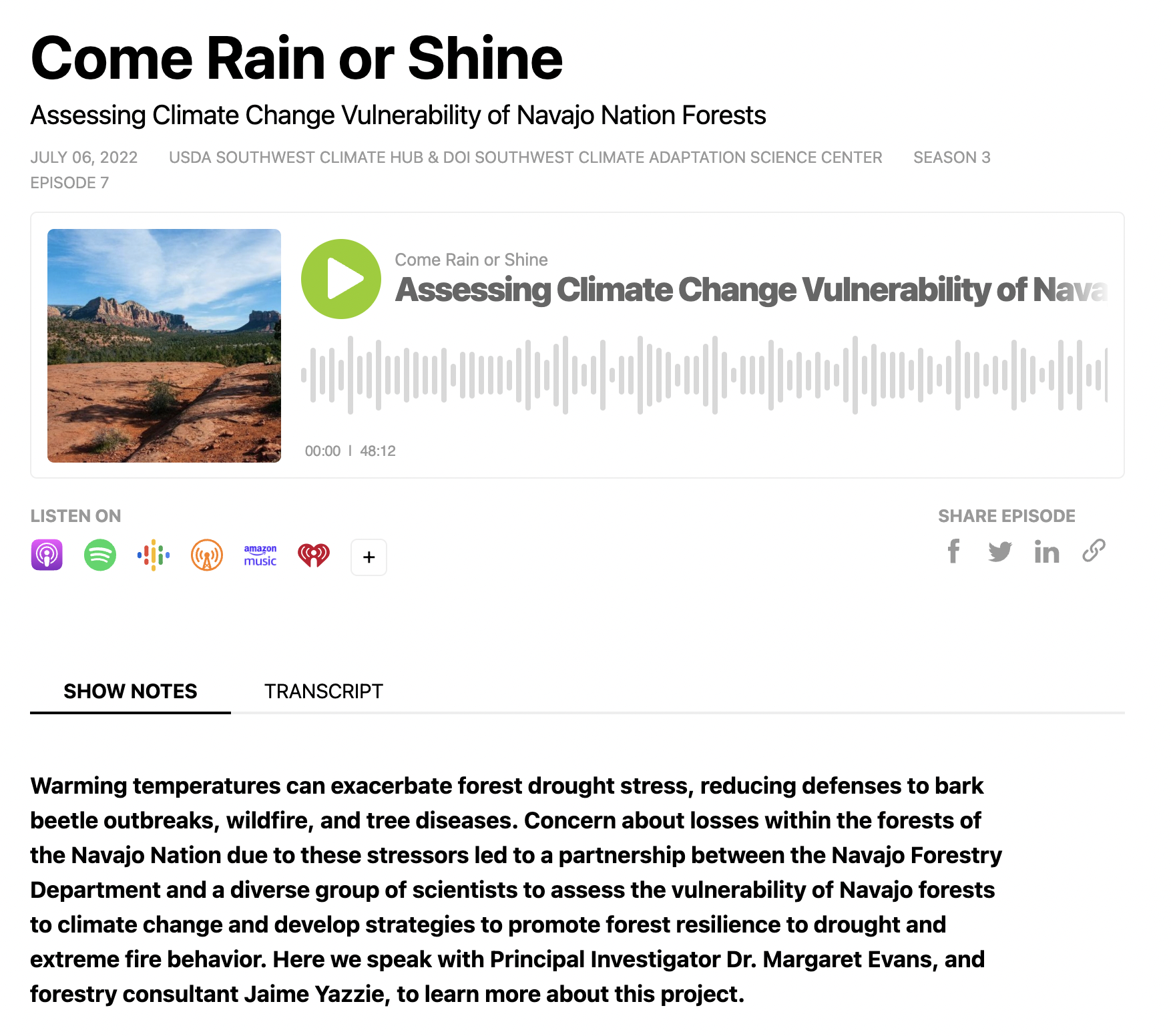Assessing Climate Change Vulnerability of Navajo Nation Forests - Come Rain or Shine Podcast

Posted by
CAKE TeamPublished
Abstract
The Come Rain or Shine Podcast is a collaborative product of the USDA Southwest Climate Hub and the DOI Southwest Climate Adaptation Science Center. They highlight stories to share the most recent advances in climate science, weather and climate adaptation, and innovative practices to support resilient landscapes and communities. They believe that sharing forward thinking and creative climate science and adaptation will strengthen our collective ability to respond to even the most challenging impacts of climate change in one of the hottest and driest regions of the world. New episodes drop the first Wednesday of each month.
In this episode, they discuss Assessing Climate Change Vulnerability of Navajo Nation Forests. Warming temperatures can exacerbate forest drought stress, reducing defenses to bark beetle outbreaks, wildfire, and tree diseases. Concern about losses within the forests of the Navajo Nation due to these stressors led to a partnership between the Navajo Forestry Department and a diverse group of scientists to assess the vulnerability of Navajo forests to climate change and develop strategies to promote forest resilience to drought and extreme fire behavior. In this episode we speak with Principal Investigator Dr. Margaret Evans, and forestry consultant Jaime Yazzie, to learn more about this project.


